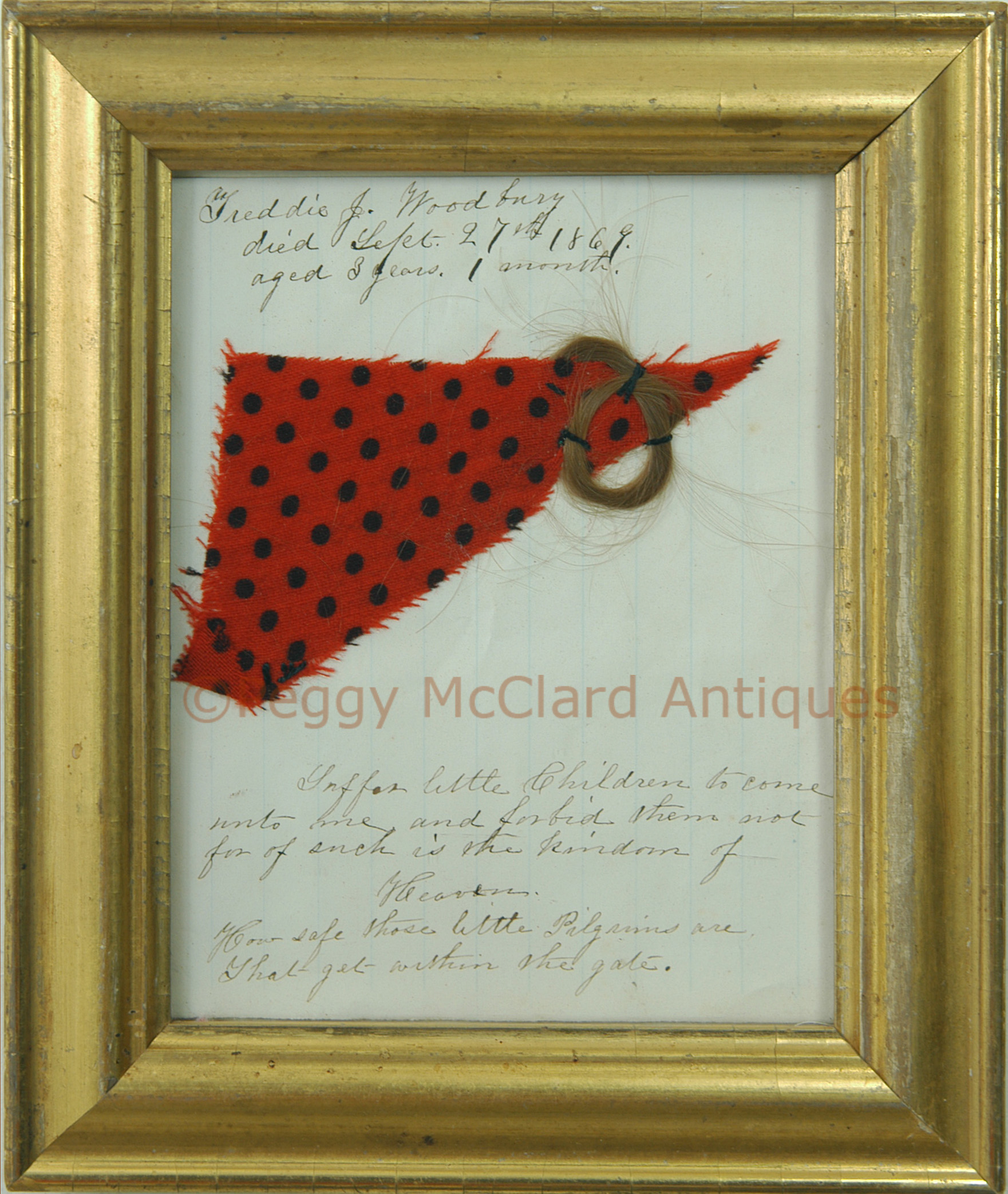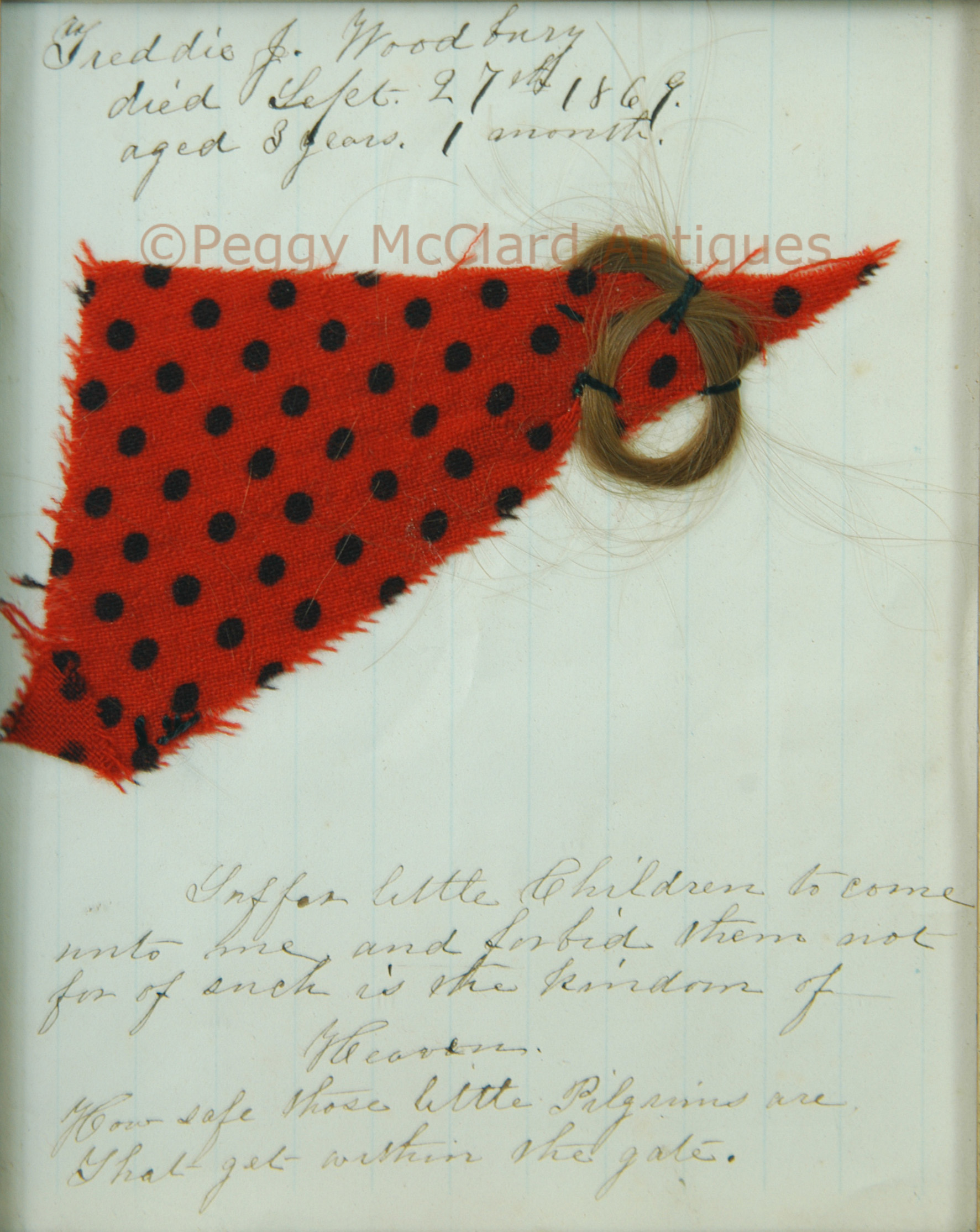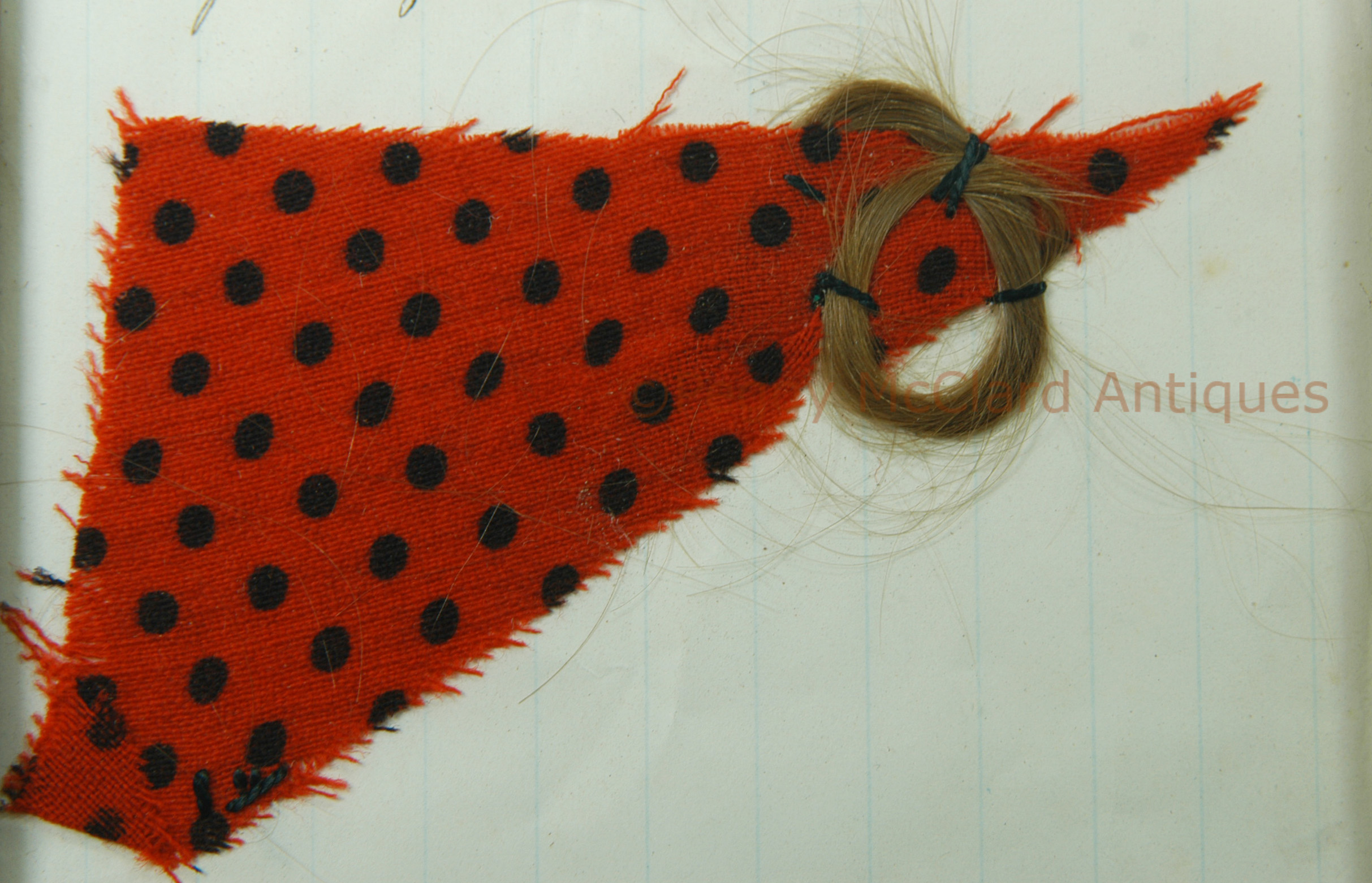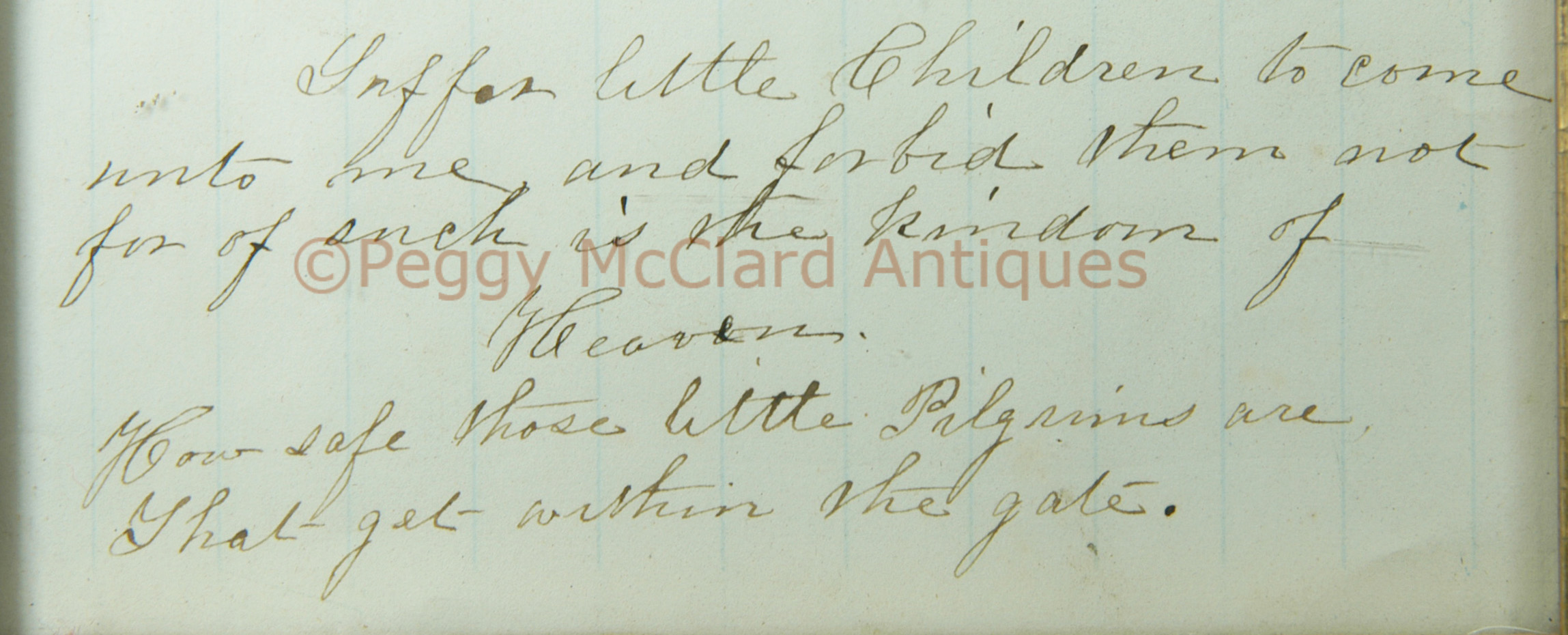
This touching memorial token for a young boy includes both a lock of his hair and remnant of bright fabric, likely from his clothing. Because hair does not disintegrate if it is properly protected, 19th century American women made it a symbol of abiding love as well as deeply felt loss. Mothers kept locks of their children's hair and unmarried women often gave locks of their hair to suitors as tokens of love. Locks of sitter's hair were often added to miniature portraits. A popular nineteenth-century women's periodical described hair ". . . at once the most delicate and last of our materials. [It] survives us like love. It is so light, so gentle, so escaping from the idea of death, that, with a lock of hair belonging to a child or friend we may almost look up to heaven and compare notes with angelic nature, may almost say, I have a piece of thee here, not unworthy of thy being now."1
The bright red and black fabric and hair are artfully arranged on a sheet of 19th century lined paper. In period ink, an inscription at the top of the page says, "Freddie J. Woodbury died Sept. 27th 1869. aged 3 years. 1 month." Below the fabric another inscription reads, "Suffer little Children to come unto me and forbid them not for such is the kindom [sic] of Heaven." The first line is from Luke 18:16. The inscription further reads, “How safe those little Pilgrims are. That get within the gate." This line is from “The Little Pilgrim”, a poem that I located in an online archived issue of Canadian Quarterly Review and Family Magazine, Vol. 1, issue 4, dated 1864. The magazine gave no credit to the author. Framed in a period gilt frame that measures 7 ½” x 6”. Condition excellent. Circa 1869.
#5736 Sold
1"Criticism of Female Beauty", The New Monthly Magazine & Literary Journal, Volume X, No. 55, 1825 at 77.




